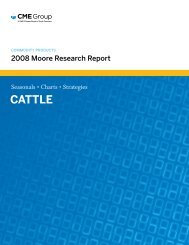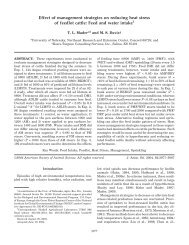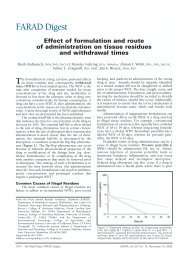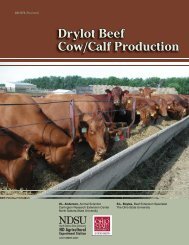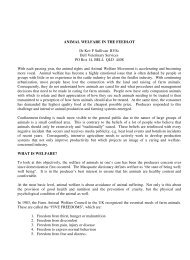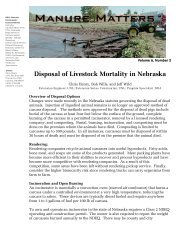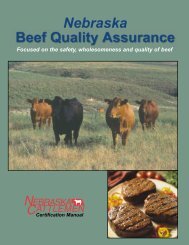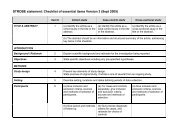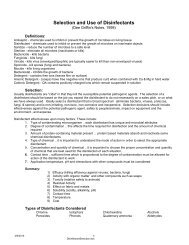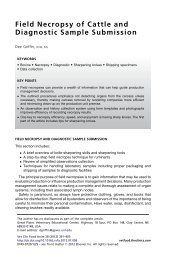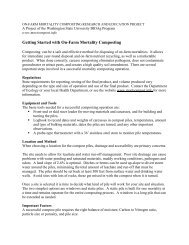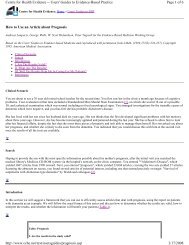CRIMES WITHOUT CONSEQUENCES - gpvec
CRIMES WITHOUT CONSEQUENCES - gpvec
CRIMES WITHOUT CONSEQUENCES - gpvec
You also want an ePaper? Increase the reach of your titles
YUMPU automatically turns print PDFs into web optimized ePapers that Google loves.
enforCement of federal laW in u.s. Plants<br />
or have had inspection services withdrawn by FSIS (see Appendix B). Many of these<br />
had been cited simultaneously or separately for violations of food safety regulations<br />
other than humane handling/slaughter. It appears that enforcement actions for humane<br />
slaughter played a role in the closure of the following plants: Berry Packing (Crossett,<br />
Ark.), GP Monroe (Grayson, Ga.), Kolob Packing (Burley, Idaho), Petaluma Livestock<br />
(Newman, Calif.) and Ward’s Inc (Jerseyville, Ill.). In the case of Petaluma Livestock,<br />
the plant was closed and subsequently sold after it was notified by the Alameda<br />
(California) District Office of the USDA-FSIS that the office was recommending to<br />
the FSIS Office of Field Operations that a formal complaint be issued to withdraw<br />
inspection from the establishment due to the plant’s failure to adequately address<br />
humane concerns. 159<br />
5.5 Analysis of federal enforcement records<br />
Review of records obtained through FOIA resulted in the identification of several serious<br />
problems in the USDA-FSIS enforcement of federal humane handling and slaughter<br />
regulations.<br />
Incomplete and inconsistent record keeping<br />
The FSIS was unable to produce copies of all NRs issued for humane slaughter violations<br />
during the time period in question, as noted above. It is possible that 100 or more NRs<br />
were missing from the documents released by the USDA. There was a lack of detail on<br />
many of the records as to the type and cause of the violation(s). In addition, there was a<br />
lack of consistent reference to the use of reject tags, and a lack of consistent follow-up<br />
on corrective measures to be taken to prevent similar occurrences. Moreover, many NRs<br />
were incomplete and did not include a plant management response, which is required on<br />
the form.<br />
Inadequate reporting of noncompliances<br />
The FSIS produced only 432 humane slaughter NRs for an 18-month period of<br />
time. However, slaughterhouse audits suggest that millions of cattle and pigs are<br />
inadequately stunned on the first attempt, as required by federal humane slaughter<br />
regulations (see Section 9). This indicates that many violations of the regulations are<br />
either unobserved or unreported. A number of the NRs reviewed made reference to the<br />
involvement of a district veterinary medical specialist in documentation of the incident.<br />
However, these veterinarians visit each slaughter plant rarely, in some cases less than<br />
once per year. 160 Moreover, a number of the NRs mention that inspection personnel<br />
159 Communication from the FSIS, Alameda District, to Manuel Brazil, owner of Petaluma Livestock Auction<br />
Yard, October 28, 2005.<br />
160 In its report on humane slaughter enforcement, the GAO noted that one year after hiring of the district vets,<br />
only 63 percent of federal plants had been visited. When interviewed by the GAO, all these vets said they<br />
participated in a number of activities beyond the scope of humane handling and slaughter of animals. Nine of<br />
the 17 vets indicated they spent 40 to 50 percent of their time at non-humane activities. In March 2003, after<br />
reviewing results of a survey of its district vets, the FSIS allowed five of the vets to perform other duties, such<br />
as food safety and food security. The remaining 12 were to focus solely on implementation of the humane<br />
53




